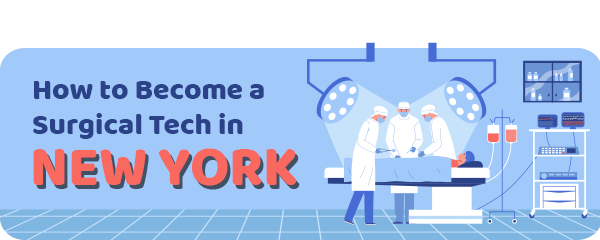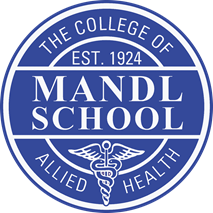In New York, surgical operating rooms are staffed with a dedicated team of professionals ready to act promptly, particularly during emergencies.
This team comprises various experts, including:
- Surgeons
- Anesthesia specialist
- Surgical nurse
- Surgical technician
Their collaboration begins before the surgery and continues until its completion.
It’s important to note that these healthcare professionals are known by various names, including operating room (OR) techs and scrub techs.
Article Table of Contents
Roles and Responsibilities of Surgical Technologists
Surgical technologists in New York perform a range of critical tasks during their shifts, including:
- Preparing patients for surgery
- Transporting patients to and from the OR
- Preparing the OR with surgical equipment and supplies
- Monitoring the instrument count throughout surgery
- Handing the surgeon medical instruments
- Closing wounds and bandaging patients
It’s important to recognize that the list of responsibilities mentioned here is not exhaustive, as these medical professionals have a broader scope of duties.
Training and Education for Surgical Technologists
Individuals aspiring to become surgical technologists in New York should follow a structured path, beginning with a high school diploma or its equivalent, such as a GED.
The subsequent steps in this process include enrolling in a specialized training program.
It’s crucial to understand that this occupation requires both formal education and hands-on clinical training.
Several educational institutions throughout New York offer training programs tailored to surgical technology.
While specific enrollment criteria may vary, there are common core courses typically required, which include:
- Microbiology,
- Pathophysiology,
- Pharmacology,
- Anatomy,
- Physiology,
- Medical terminology.
- CPR and/or BLS and/or AED
Let’s take a closer look at some of the institutions in New York that offer such programs.
Central New York Community College 
CNYCC offers an Associate in Applied Science (AAS) degree program in surgical technology.
This comprehensive program combines classroom and laboratory instruction at the Syracuse campus with clinical labs held in local hospitals and surgery centers.
The program spans a total of 62-68 credit hours, including general education requirements, and is spread over five semesters.
Clinical labs are scheduled for the final two semesters.
Admission requirements for this program are as follows:
- Possession of a high school diploma or GED
- Successful completion of a background check
- Completion of a math prerequisite course or an equivalent math score on a placement test, ACT, or SAT
- Completion of an English prerequisite course or an equivalent reading/English score on a placement test, ACT, or SAT
- Completion of prerequisite courses in biology and chemistry or an equivalent biology score on a placement test
Mandl School College of Allied Health 
New York City’s Mandl School College of Allied Health presents students with the opportunity to earn an Associate of Science degree in surgical technology.
This program spans 62 credit hours and can be successfully completed within a 75-week timeframe.
Students engage in classroom-based learning, complemented by a well-equipped skills lab on campus for hands-on training.
The curriculum also includes a clinical externship component.
Center for Allied Health Education 
The Center for Allied Health Education, located in Brooklyn, offers an ABHES-accredited one-year certificate program in surgical technology.
The program comprises 1,104 clock hours, with 490 of those hours dedicated to clinical training.
To graduate from the program, students are required to maintain an overall C average, equivalent to a 2.0 GPA.
Onondaga Community College 
Situated in Syracuse, Onondaga Community College provides a surgical technology certificate program designed to be completed in as little as 11 months.
The program encompasses 37 credit hours, distributed across fall, spring, and summer semesters.
Clinical practice is a pivotal component of the program, taking place during the final two semesters in hospitals and outpatient surgery centers in the Syracuse area.
Graduates must pursue certification within a year of completing the program.
| School Name | Address |
|---|---|
| Central New York Community College | Mohawk Valley Health System 1656 Champlin Avenue Utica, NY 13502 |
| Mandl School College of Allied Health | 254 W 54th St, New York, NY 10019 |
| Center for Allied Health Education | 1401 Kings Hwy, Brooklyn, NY 11229 |
| Onondaga Community College | 4585 W Seneca Tpke, Syracuse, NY 13215 |
Certification for Surgical Technologists
While certification is not legally mandated for surgical technologists in New York, many employers prefer candidates with certification.
Several certifying bodies in this field include:
- National Surgical Assistant Association (NSAA)
- Provides the Certified Surgical Assistant (CSA) qualification
- National Board of Surgical Technology and Surgical Assisting (NBSTSA)
- Provides the Certified Surgical Technologist/Certified First Assistant credential
- National Center for Competency Training (NCCT)
- Provides the Tech in Surgery Certification
Among these certifications, the one provided by the NBSTSA holds the highest reputation and is nationally recognized.
Testing centers for these certification exams can be found in several cities across New York.
The certification exam consists of 200 questions, and a minimum of 119 correct answers is required to pass.
It’s essential to note that there is an associated fee for taking the exam, with different rates for Association of Surgical Technologists (AST) members and non-AST members.
Certified surgical technologists are required to renew their certification every four years.
This renewal can be accomplished through either retaking the certification exam, which necessitates re-payment of the exam fee or by completing continuing education classes.
During this period, 60 education credits must be earned within the renewal period.
Certification renewal also requires payment of a renewal fee.
Surgical Technologist Salary in New York
While this profession may not be the most glamorous, it’s important to consider the potential income when pursuing a career as a surgical technologist in New York.
On average, an operating room (OR) tech in New York can earn an annual salary of about $54,900.
Check out the table below for additional info.
Annual Salary Range:| Location | Avg. Annual Salary |
|---|---|
| Astoria | $60,400 |
| New York | $60,400 |
| Arverne | $59,900 |
| Wyandanch | $58,800 |
| Huntington | $58,800 |
| Yorktown Heights | $58,000 |
| Brentwood | $56,400 |
| Yaphank | $56,300 |
| New Suffolk | $55,800 |
| Barrytown | $55,200 |
Regional Salary in New York
| Region | Employed | Avg. Annual Salary | Avg. Hourly Pay | Top 10% Annual Salary | Bottom 10% Annual Salary |
|---|---|---|---|---|---|
| Albany-Schenectady-Troy, NY | 240 | $54,510 | $26.21 | $72,550 | $38,370 |
| Buffalo-Cheektowaga-Niagara Falls, NY | 390 | $66,180 | $31.82 | $78,100 | $51,220 |
| New York-Newark-Jersey City, NY-NJ-PA | 5,680 | $75,700 | $36.39 | $98,730 | $51,370 |
| Rochester, NY | 260 | $57,780 | $27.78 | $74,190 | $37,360 |
| Syracuse, NY | 230 | $63,160 | $30.37 | $80,120 | $49,090 |
| Utica-Rome, NY | 50 | $56,030 | $26.94 | $71,470 | $49,360 |
* Employment conditions in your area may vary.
Frequently Asked Questions
Can a Surgical Tech From New York Choose a Specialty?
YES!
Just like surgeons can choose to operate on a specific body part, so can these techs.
Here are the most commonly chosen surgery niches:
- General surgery,
- Ob/gyn,
- Urology,
- Plastics,
- Neurology
Where Do Surgical Technologists from New York Find Work?
These technologists usually work in a hospital’s surgery wing.
Furthermore, these other places also hire such specialists:
- Children’s hospitals
- Cosmetic surgery centers
- Specialty clinics for surgical procedures
What Skills Do I Need To Work As A Surgical Tech in New York?
Here are the most important skills this profession requires:
- Able to work as part of a team
- Detail-oriented
- Take direction
- Understanding medical terms
- Understanding medical methodology
- Good communication skills
Read the full guide: How to Become a Surgical Technologist




